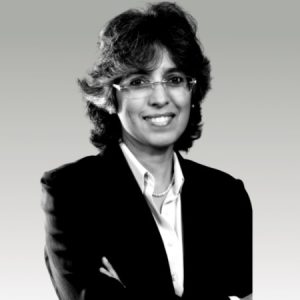
Meher Pudumjee
Guest is known for...
Meher Pudumjee is the Chairperson of Thermax Limited, an energy and environmental engineering company in India. She is also involved in philanthropy, serving as Chairperson of Akanksha Foundation and a Trustee of Teach to Lead Mumbai, and on the board of several other organizations. Meher is a music enthusiast and has been recognized for her professional achievements, commitment to society, and potential as a Young Global Leader by the World Economic Forum.
Here's what I will learn...
In the conversation with Meher, she discussed how her childhood and upbringing have shaped her philanthropic views, as well as her experiences dealing with loss. Meher also shared how music has influenced her leadership style and how she approaches philanthropy, and discussed her thoughts on passing the baton to future generations.
LISTEN TO THE FULL CONVERSATION
From the Podcast
Meher talks about how her early years have shaped her approach to life, specifically around giving and social impact. She also talks about how her parents treated her and her brother in a gender-agnostic way and the impact of that on her attitudes.
Meher talks about how the baton of leadership passed to her mother (Anu Aga) when her father passed away and how things changed even further when her brother passed away shortly after. She also reflects on the subsequent transition when her mother decided to retire as the Chairperson suddenly that pushed Meher to the saddle.
Meher talks about how she and her mother (Anu Aga) dealt with the sudden loss of her father and her brother within a span of a few months. She talks about how they got the strength to deal with the loss and the soul-searching she went through to come to terms with it. She talks about the criticality of gratitude and cherishing the relationships that matter when people are still alive and the importance of not having the guilt that you didn’t give it what you could.
Meher talks about how her experiences as a singer in a choir have helped her in her corporate pursuits. She talks about how it has helped her build a sense of purpose beyond numbers. She also talks about how performing as a collective has helped her realize the value of teamwork and how an orchestra is only as good as the weakest musician.
Meher talks about her approach towards CSR and Philanthropy and how she thinks about “chunking” rather than “sprinkling” (a phrase Adam Grant uses in his book Give and Take). She also talks about the criticality of working with the Government to drive Scale.
Meher discusses her approach towards her children getting involved in Thermax moving forward. She talks about the distinction between responsible ownership and day to day management. She also talks about the criticality of external experience before starting within the company (something she misses in hindsight) in case the child wants to get into the management of the company.
Meher shares her perspectives on what it would take to have more women leaders at the top. She starts with the challenges in basic education and sanitation and how that severely restricts the number of women who start a corporate journey. She goes on to talk about what organizations and women can do to ensure that we have more women at the top.
Meher talks about the role of self-awareness and discovering what energizes you. She also offers a practical tip to people who claim “I don’t know what I am passionate about”. She suggests that they start somewhere and then along the way, figure out what energizes them.
